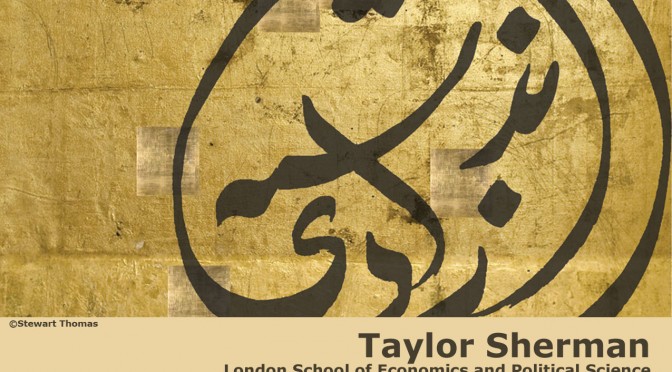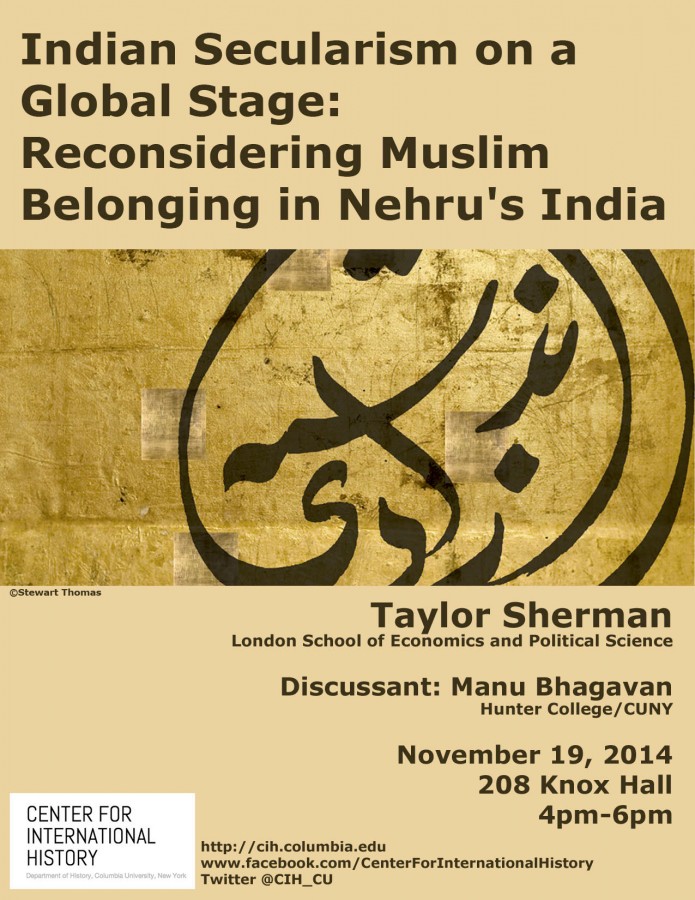Indian Secularism on a Global Stage: Reconsidering Muslim Belonging in Nehru’s India
by Prof. Taylor C. Sherman, London School of Economics and Political Science
Discussant: Prof. Manu Bhagavan, Hunter College/CUNY
Wednesday, Nov 19, 2014
208 Knox Hall
4pm-6pm
Muslim belonging in India since independence has been anchored using the language of secularism. However, the rise to power of the BJP in recent decades and the concomitant anti-Muslim violence in India has led some to declare that India’s secularism is in crisis. Much of the discussion surrounding this issue is predicated upon the assumption that India’s secularism was firmly established under the rule of the first Prime Minister of independent India, Jawaharlal Nehru. This paper takes a new look at secularism in Nehru’s India. Rather than focusing on what Nehru said in his speeches and letters, this paper examines notions of secularism as the term was deployed on multiple levels of government and in wider society. It reassesses Nehru’s influence, and explores the ways in which calculations about the treatment of Indian Muslims in India were often worked out on a global stage.

